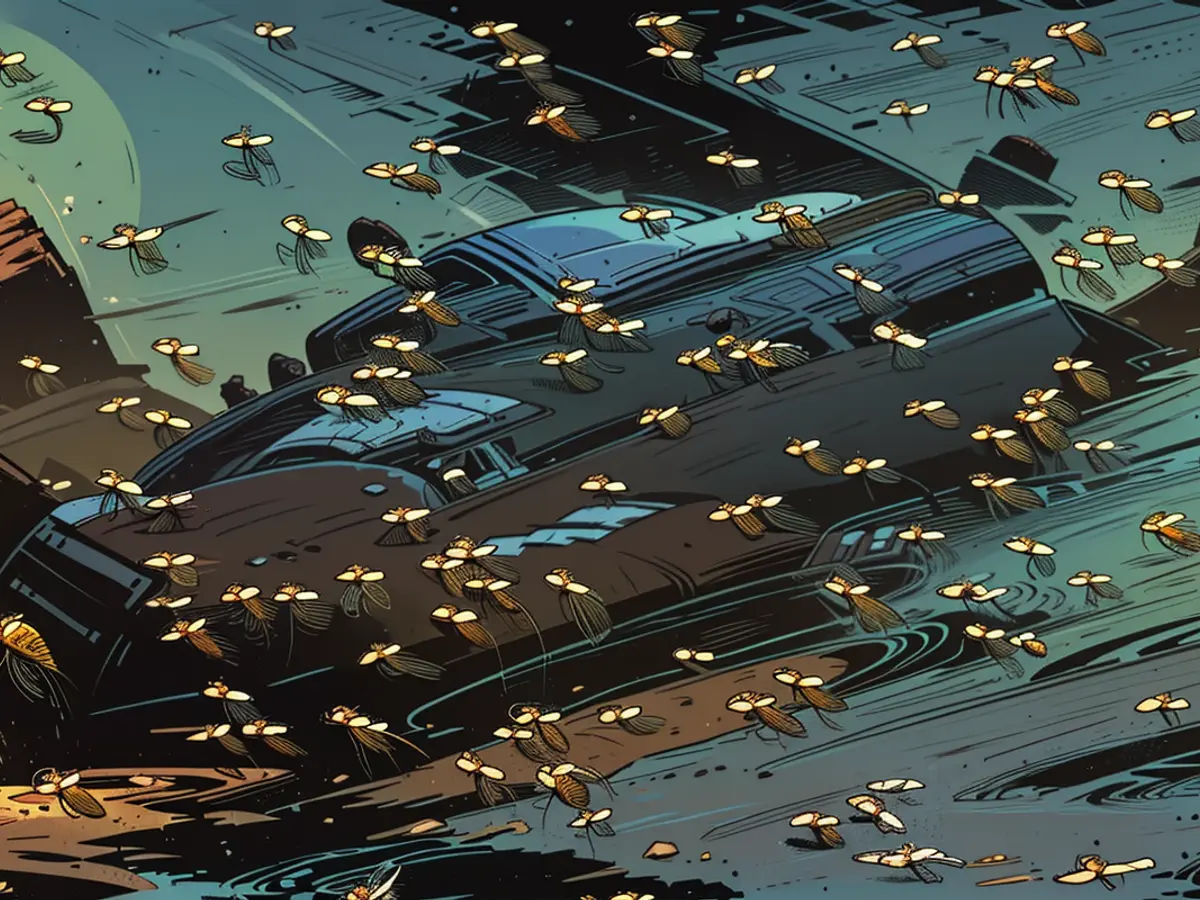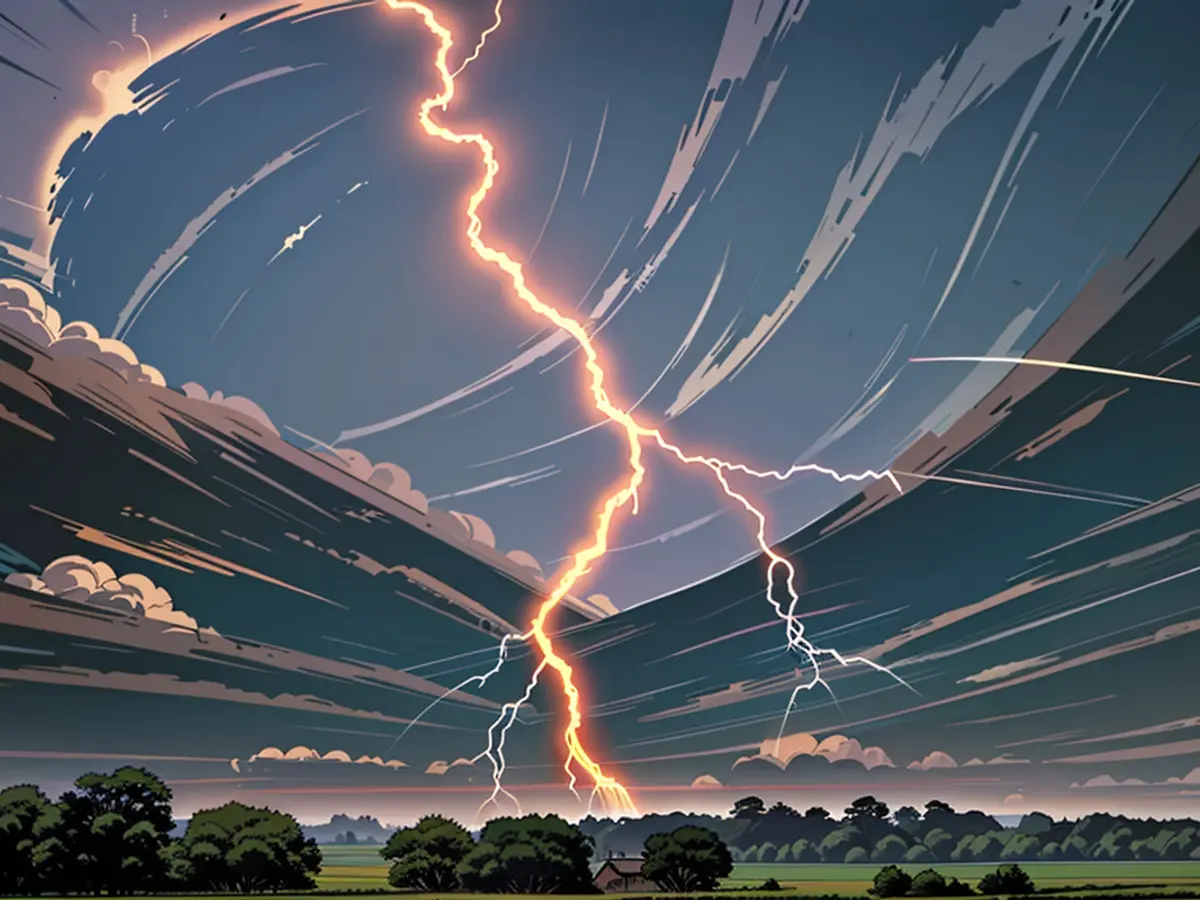Mosquitoes are proliferating rapidly across Lake Constance.
Summer Troubles Bring Out the Bloodsuckers: Mosquitoes are thriving in ideal breeding grounds at Lake Constance due to the floods and standing water. The mosquito population is growing rapidly. Among the numerous mosquitoes, there are also particularly aggressive ones.
As per an expert, mosquitoes are having a field day in Southern Germany due to the flooding and the heat. At Lake Constance, one can already talk about a mosquito epidemic, said Rainer Bretthauer. The environmental and climate protection officer of the city of Radolfzell am Bodensee stated that the flooding provide perfect conditions for egg-laying. The outcome: a huge increase in numbers.
Lake Constance tourists and locals should prepare themselves, for example, through adapting their clothing, said the expert. Loose-fitting, long clothing is recommended. The timing also plays a role during outdoor activities: "During twilight, when the temperature is above 18 degrees, they become aggressive."
Certain regions, including those in the Bodenseekreis, are already severely affected. Residents report huge swarms of mosquitoes that make staying outside a nightmare. The mosquito infestation is so intense that camping sites and recreational areas are facing substantial losses, as guests may cut their stays short due to the mosquitoes.
One man's misery is another man's feast
For many animals, mosquitoes are a blessing, according to the Nature Protection Association (NABU). "The masses of insects that are emerging now are an essential food source for many fish species and also for birds," said Eberhard Klein from the NABU in Konstanz. In Germany, around 50 species of mosquitoes are known to exist. A part of this group is called "flood mosquitoes," which hatch in larger numbers after flooding. Experts believe that these small insects are particularly relentless in their blood-sucking, as they need to reproduce quickly before the favorable conditions disappear.
Flood mosquitoes lay their eggs on damp ground, often in riverbanks and marshy areas. There, they can endure for several years in the soil. When the breeding sites are flooded and the weather is suitable, the development from egg to biting mosquito starts. In large floods, mass hatching can occur.








